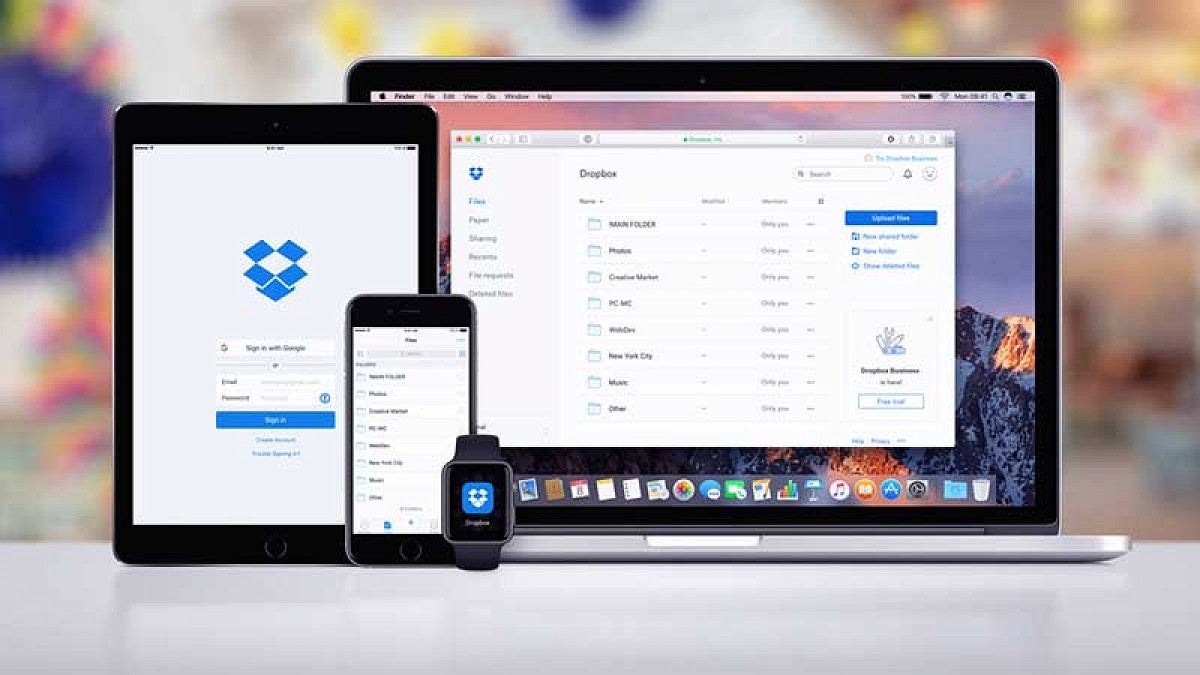The University of Oregon's Dropbox service has stabilized after a tumultuous March but its future remains uncertain.
That's the update that Information Services shared this spring, along with a new topical webpage: Future of UO Data Storage: Dropbox and Beyond.
"Dropbox is still a secure, approved place to store UO data," said Melody Riley, associate chief information officer for enterprise solutions. "Dropbox will continue to be available here through at least March 2025, when our current contract ends. In the meantime, Information Services is moving as quickly as possible to develop a more comprehensive storage strategy."
In late March, Information Services announced a new Dropbox storage quota of 100 gigabytes per person to prevent an impending storage overrun.
However, a grace period has been in effect since the quota's inception — and will now extend through next March, barring another spike in usage. Dropbox users with more than 100 gigabytes of data may receive automated notifications saying their accounts are full, but the quota isn't actually being enforced.
"Current Dropbox users should feel free to continue using the service in moderation," Riley said. "We have a little breathing room now."
For this contract, Information Services and the Office of the Vice President for Research and Innovation continue to jointly fund Dropbox for the UO.
Whether the university will continue to offer an institutional Dropbox service beyond March remains unclear.
Over the last few years, many companies offering so-called "commodity" cloud-based storage services, such as Dropbox, have pushed exorbitant price increases, especially for unlimited storage, and reduced the predictability of their contracts.
For example, the UO entered its current 1-petabyte limited-storage contract with Dropbox in March to avoid paying 70 percent more for the unlimited storage previously enjoyed by the UO community.
In April, the UO negotiating team contacted Dropbox again, this time about the possibility of a contract for 2 or 3 petabytes of storage. The company's response was to push for more price increases, even beyond their original proposal.
"This is part of a larger trend we're seeing with technology contracts," said Greg Shabram, chief procurement officer. "Some vendors that entered the higher ed space during the pandemic have moved into extractive positions without a real, legitimate partnership to help the university meet its mission."
Paying more money for less storage runs afoul of responsible financial stewardship. The situation has further motivated Information Services to diversify data storage offerings, a need leaders had already been seeking to address.
"Research has become increasingly data-intensive," said Christy Long, associate chief information officer for technology infrastructure and chief of staff. "The UO needs a range of storage options that support the full research life cycle, from active to archival storage, and that meet the needs of researchers with large files and data sets."
Information Services staff are exploring storage options tailored to research data and to audiovisual media, as well as archival storage and various commodity cloud offerings. Staff plan to share more details with the UO community and UO leaders by the end of September.
As part of that process, Information Services is consulting with the research and innovation office and other units to help inform decisions about the fate of UO's Dropbox service beyond the current contract. Options might include keeping the Dropbox service as is, shifting to a fee-for-service model and reducing UO's overall usage of Dropbox, or switching to a different storage product.
If the UO doesn't continue offering Dropbox after March, Information Services will provide security guidance for individuals and teams seeking to purchase Dropbox licenses separately, such as for research.
UO employees are responsible for being aware of the sensitivity of the data they handle, for using approved storage locations that support that policy, and for following other controls associated with different classes of data. The Information Security Office can help identify secure and compliant solutions.
Before deleting files or other data, or moving them out of UO systems, employees should be aware of their recordkeeping responsibilities as explained in the short video Records and Our Shared Responsibilities from University Records Management.
Anyone who needs help with Dropbox or other forms of data storage can submit a ticket at Dropbox support in the UO Service Portal or contact the IT staff who support their unit or the Technology Service Desk.
"I want to thank everyone who took thoughtful, timely action earlier this year to help us get to this point," said Abhijit Pandit, vice president and chief information officer.
—By Nancy Novitski, University Communications


